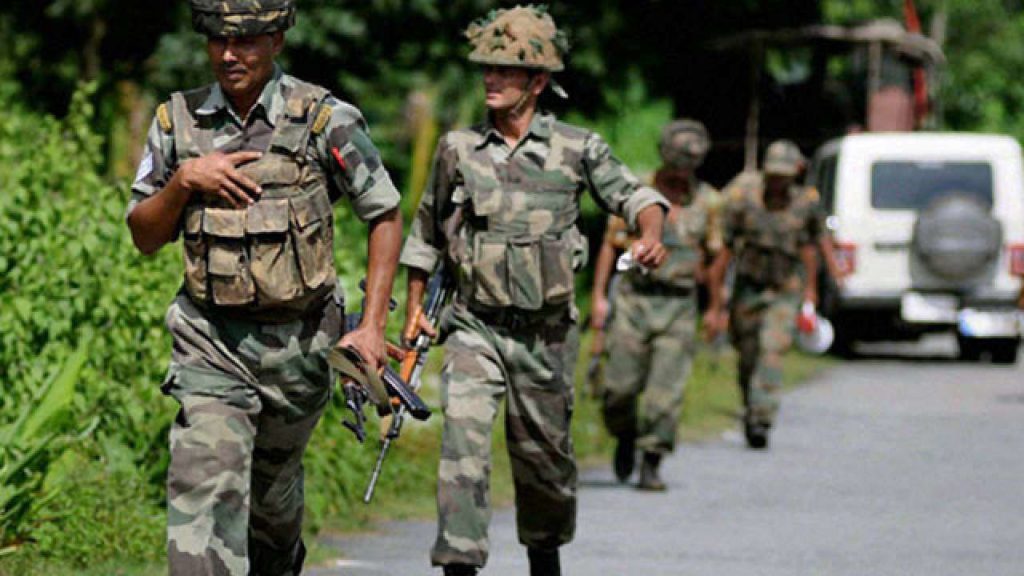Bhalachandra Shadangi
The massacre of 14 civilians, including six coal mine workers, in Nagaland’s Mon district by the Indian Army has shaken the conscience of the nation. The workers were murdered on the evening of December 4 while travelling from their place of work in Tiru area to their village Oting. Though the Army quickly tried to cover up these murders as an “undercover operation gone wrong”, eyewitness accounts have exposed the entire episode. Even Nagaland Police, in its preliminary report on the civilian killings, have hinted at a possible cover-up of the gruesome action by security forces. The local Tizit police station has lodged an FIR of planned murders. The case has been promptly taken over by the state Crime Branch and a SIT is set up to investigate the incident.
The Union Home Minister has expressed regret over the killings in the Parliament. On the other hand, from what the Army said, one may infer that the Centre and the Army would have no regret if the killed belonged to any outlawed Naga outfit irrespective whether there was any provocation or any reason considering the killed were traveling in an open vehicle.
Several questions arise from this barbaric incident. One thing is clear that without having any credible intelligence inputs of terrorist in the vehicle, the Army unit has carried out the ambush. Even if there was no retaliation from the other side, the jawans fired proactively. Why didn’t the Army observe constraint? This is nothing but the cold blooded murder by the men in uniform, shielded by the AFSPA for their heinous crime.
The cold-blooded killing of civilians has resulted in serious wave of anger sweeping through Nagaland and Naga inhabited areas of Manipur, Assam and other neighbouring states. Villages have put signboards outside their villages prohibiting entry of Assam Rifles, operationally a part of Indian Army. One protester was killed in police firing outside Assam Rifles office in Mon district. Such is the anger sweeping Nagaland and other states of Northeast that Chief Ministers of Nagaland and Meghalaya have demanded repeal of AFSPA.
Though AFSPA was enacted in 1958 by the Government of India, it has colonial root. It is based on the Armed Forces (Special Powers) Ordinance of 1942, which was issued during the Quit India movement to suppress the freedom movement. It gives armed forces special powers to control “disturbed areas”, designated by the Centre. Under its provisions, the armed forces have been empowered to open fire, enter and search without warrant and arrest any person who has committed a cognisable offence, all while having immunity from being prosecuted.
There has been continuous demand from different people’s organisations and civil liberty organisations to repeal this draconian law. They blame AFSPA for the killings, alleging that the law gives blanket protection to the Army to kill with impunity. In 2016, hearing the petition of Extra Judicial Execution Victims Families Association, the Supreme Court also ruled that over 1,500 cases of alleged fake encounters in Manipur in the last 20 years “must be investigated”. Of course these are just the recorded cases and that instances of people simply disappearing have gone unreported over the years.
The Jeevan Reddy Committee formed in 2004 had recommended a complete repeal of the law. It said, “The Act is a symbol of hate, oppression and an instrument of high handedness.” This draconian law was upheld by the Supreme Court albeit with some directions to prevent its abuse in the judgment delivered by Justice Madan Lokur. But the law is itself an abuse of the process of law and hence these directions have obviously remained pious wishes on paper. Nothing short of repeal will do.
It is also significant that the Centre, especially under RSS-BJP rule, has abandoned the ‘peace process’ which was being pursued with National Socialist Council of Nagaland (I-M). Since the abandonment of this process even after signing a framework agreement in 2015 repression on the people of Nagaland has been intensified. It is time that the Government of India resumes meaningful dialogue with NSCN(I-M) to further the agenda of peace in Naga Hills and not try to ‘solve’ the issue with the use of armed forces.
The writer is an Odisha-based social activist and columnist. Views expressed are personal.
